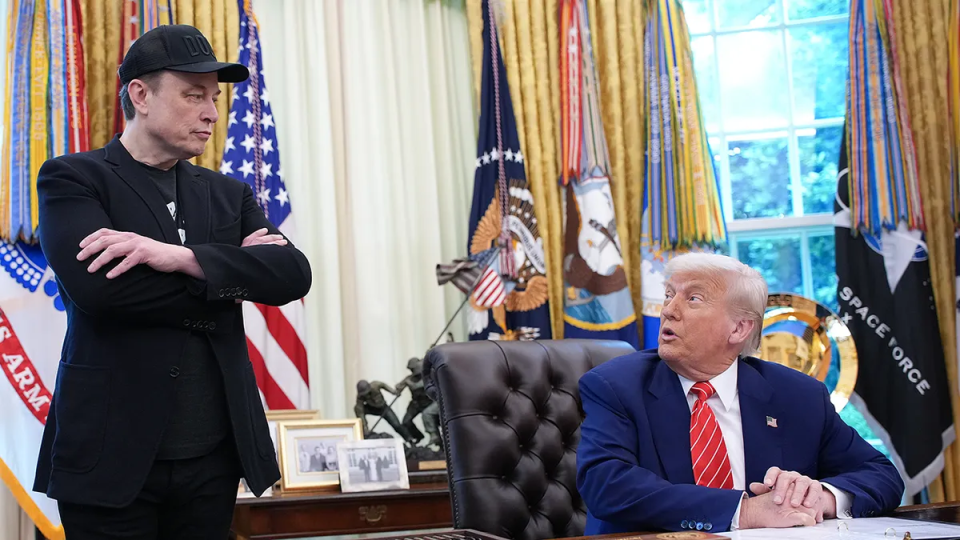Tesla and SpaceX CEO Elon Musk has sharply escalated his opposition to the sweeping tax and spending legislation championed by former President Donald Trump, calling on lawmakers to “KILL the BILL” and warning that it will drive the United States into “debt slavery.” Musk’s vocal criticism comes shortly after he stepped down from his brief role leading the White House’s Department of Government Efficiency, a position focused on cutting federal waste.
On his social media platform X, Musk did not hold back, describing the bill as a “disgusting abomination” and “outrageous, pork-filled” legislation that will “massively inflate the already staggering deficit” and bankrupt the country. He urged the public to contact their senators and representatives to oppose the bill, emphasizing that “Bankrupting America is NOT ok!”
The legislation, known colloquially as the “One Big Beautiful Bill,” seeks to extend many provisions of the 2017 Tax Cuts and Jobs Act, which was President Trump’s signature legislative achievement during his first term. It includes new tax cuts such as eliminating income tax on car loan interest, overtime pay, and tips. The bill also proposes significant spending increases, including the largest hike in the U.S. debt ceiling in history, and cuts to programs like Medicaid and the Supplemental Nutrition Assistance Program (SNAP).
The Congressional Budget Office (CBO), a nonpartisan agency, estimates that the bill will add approximately $2.4 trillion to the federal debt over the next decade, which currently stands at $36.2 trillion. Earlier projections had suggested the bill could add as much as $3.8 trillion, but recent adjustments have lowered that figure slightly.
Musk’s opposition is rooted in concerns about the bill’s impact on the national debt and deficit. He warns that the legislation will “massively increase the already gigantic budget deficit” potentially pushing it to $2.5 trillion annually. He argues that the bill’s massive spending and debt ceiling increase will trap Americans in a cycle of debt, with interest payments consuming an ever-growing share of government revenue, currently about 25%. Musk warns that if this trend continues, there will be no funds left for essential services like Social Security, healthcare, or defense.
He has described the bill as a betrayal of efforts to reduce government waste, directly contradicting the goals of the Department of Government Efficiency, which he led until the end of May. Musk’s blunt language reflects his frustration with lawmakers who supported the bill, telling them “you know you did wrong.”
Musk’s opposition also appears influenced by provisions in the bill that could negatively affect his companies. For instance, the legislation cuts electric vehicle tax credits that benefit Tesla, and it may impact federal contracts related to SpaceX. These factors likely add a personal dimension to Musk’s public campaign against the bill.
Despite Musk’s vocal criticism, White House officials remain committed to the legislation. Press Secretary Karoline Leavitt reaffirmed the administration’s support, dismissing Musk’s attacks as unlikely to change the president’s stance. The bill passed the House of Representatives by a narrow margin and now faces a critical vote in the Senate, where it would require a few Republican defections to fail.
The bill includes a critical increase in the debt ceiling, which Treasury officials warn must be approved before August to prevent the United States from defaulting on its obligations for the first time in history. President Trump has set a July 4 deadline for Congress to pass the legislation, adding urgency to the debate.
Musk’s call for lawmakers to reject the bill and draft a new fiscal plan that does not balloon the deficit highlights a growing rift within conservative ranks about the nation’s fiscal future. His transition from government adviser to outspoken critic signals a shift in his approach to public policy, focusing on fiscal responsibility and the long-term economic health of the country.
Elon Musk’s recent outburst against President Trump’s tax and spending bill underscores the intense debate over America’s fiscal direction. Labeling the legislation a “disgusting abomination” and warning of “debt slavery,” Musk is urging Congress to reconsider a bill that could add trillions to the national debt and reshape government spending for years to come. As the Senate prepares to vote, the business and political communities will be watching closely to see whether Musk’s call to action resonates beyond his social media posts.

